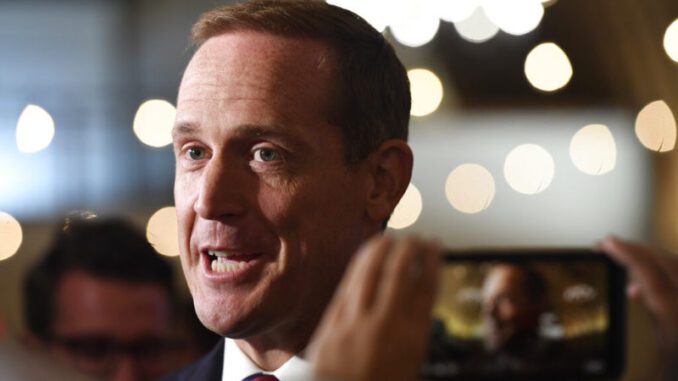
Even though hyper-partisan legislation has dominated Congress this year, I’ve remained focused on identifying ways to support the largest industry in North Carolina: agriculture. As you may know, I grew up on my family’s cattle and chicken farm in Davie County, and I still live there with my wife and children.
At the onset of the COVID-19 pandemic, many farmers saw a significant decline in their business. As a result, Congress swiftly established the Coronavirus Food Assistance Program (CFAP). This important relief program within the CARES Act helped farmers across America who suffered a 5% or greater price decline as a result of COVID-19.
While the program was fairly successful in 2020, I did hear from several farmers in my district who had concerns around CFAP eligibility rules. I had the chance to hold district visits with farmers during the early stages of the pandemic to learn more about some of these issues and how I could assist. I always tell constituents – and especially farmers – to contact my staff or myself directly if they have an issue or need assistance.
That is exactly what happened earlier this year. A broiler breeder farmer in Davie County reached out to my staff regarding an intricate United States Department of Agriculture (USDA) dilemma. Under the first round of CFAP funding, operations like theirs were excluded from being able to apply for federal assistance.
My team moved quickly and set up a meeting with her, representatives from North Carolina Farm Bureau, and other key stakeholders to gather more information about the specific issue at hand. Following that meeting, I was briefed on the issue and led a letter with my colleagues Reps. Patrick McHenry and Dan Bishop, urging USDA Secretary Tom Vilsack to include broiler breeders in the second round of CFAP funding.
Several months went by and we did not hear anything substantive from USDA officials. But just last week, USDA issued a public statement clarifying CFAP eligibility rules for livestock and poultry producers. Finally, broiler breeders were ruled eligible to apply for relief and participate in CFAP. While you probably did not see this headline on mainstream media outlets in big cities, it was important to real people back home who I am fortunate to represent.
Fighting for those in farm country could not come at a more important time. I have had the chance to present my constituents’ concerns to many federal officials in D.C. since being elected to Congress back in 2016. While some go to Washington and disregard the folks who put them there, I will never forget how important farmers have been and will continue to be to North Carolina and our economy.
Ted Budd is a Member of Congress representing North Carolina’s 13th Congressional District.



